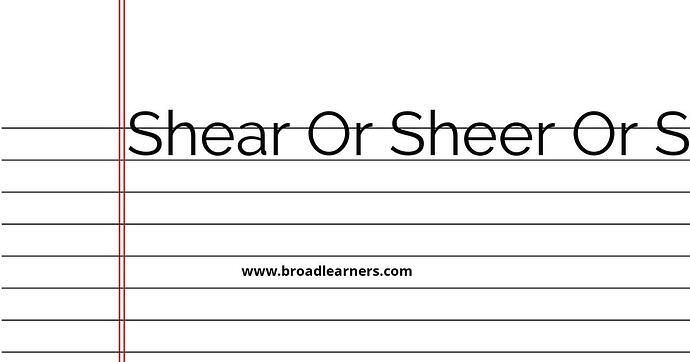'Shear', 'sheer', and 'shear' are commonly confused words in English grammar. Understanding the difference between 'shear', 'sheer', and 'shear' is important to use them correctly in written and spoken English.
'Shear' is a verb that means to cut or remove something by using force, typically using scissors or shears. It is often used in the context of cutting hair, trimming plants, or removing wool from sheep.
'Sheer' is an adjective that means absolute, complete, or total. It is used to describe something that is very steep, almost vertical, or extremely thin. It can also mean transparent or pure.
'Shear' is also a verb, but it has a different meaning than the first 'shear'. It means to cause something to become dislodged or separated by applying force. It is often used in the context of breaking or cutting apart something, such as shearing off a bolt or shearing a metal plate.
Let's take a closer look at the meanings and usage of 'shear', 'sheer', and 'shear'.
| 'Shear' | 'Sheer' | 'Shear' |
|---|---|---|
| The word 'shear' is a verb that means to cut or remove something using force, such as scissors or shears. | The word 'sheer' is an adjective that means absolute, complete, or total. | The word 'shear' is also a verb that means to cause something to become dislodged or separated by applying force. |
|
|
|
To remember the difference between 'shear', 'sheer', and 'shear', it can be helpful to remember their definitions and usage examples:
- 'Shear' - think of scissors or shears used for cutting or removing something.
- 'Sheer' - think of something absolute, complete, or total.
- 'Shear' (second meaning) - think of something being dislodged or separated by applying force.
Here are some examples of correct usage:
- I need to shear the sheep before winter comes.
- The sheer magnitude of the storm was terrifying.
- The strong winds sheared the roof off the house.
Remembering the correct usage of 'shear', 'sheer', and 'shear' will improve your grammar and communication skills.
